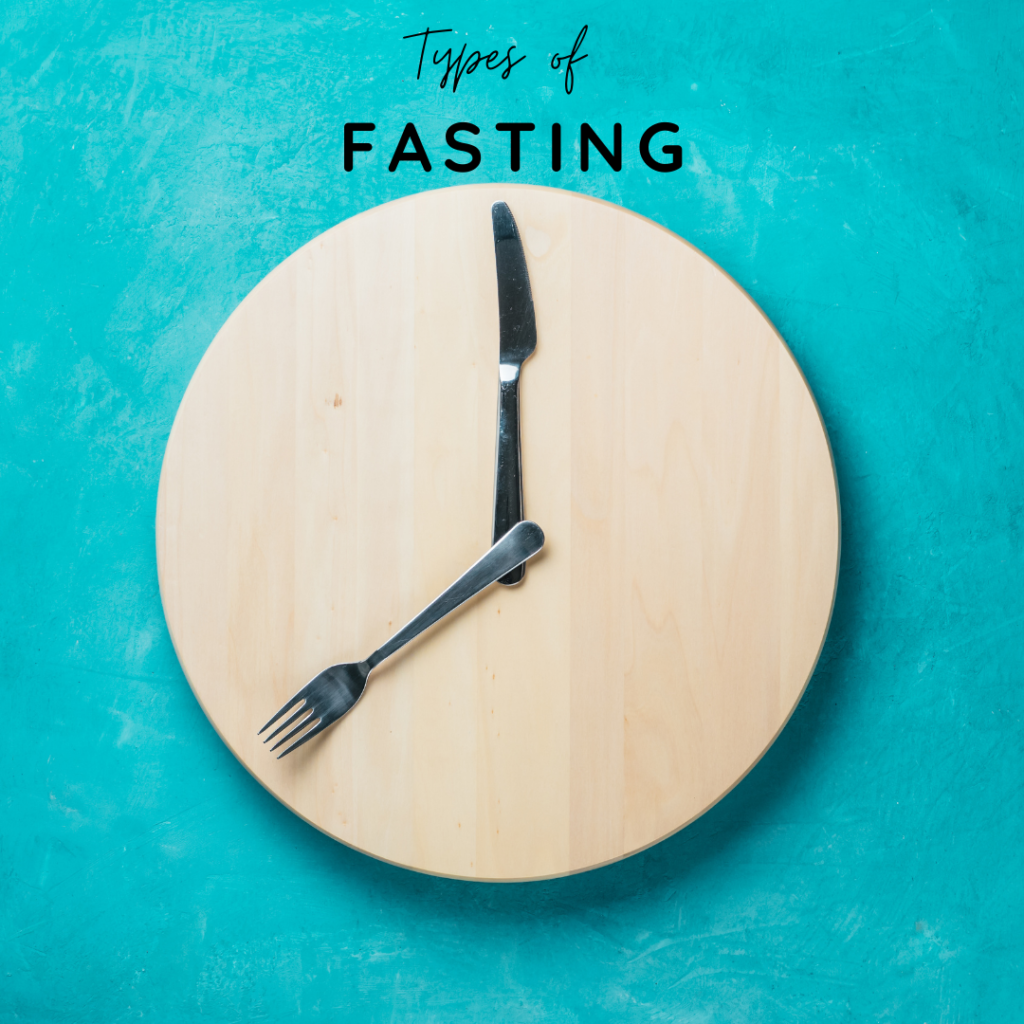
Everything You Need To Know About Intermittent Fasting.
Did you know that intermittent fasting has numerous health benefits in addition to helping you lose weight?
Fasting can help boost your immune system and protect your brain from damage. Fasting can increase your life span and make you think clearer.
Intermittent fasting is a powerful tool for living a healthy lifestyle.
In this blog post, we have listed all the details about intermittent fasting.
So if you are a beginner and want to start your intermittent fasting journey, continue reading to learn more!

Most Common Questions about Intermittent Fasting:
What is the Most effective intermittent Fasting Method?
According to research, the most effective type of intermittent fasting is Alternate Day Fasting. In alternate day fasting you eat a normal diet one day and fast the following day.
What breaks Intermittent Fasting?
As a general rule, consuming any number of calories can break a fast. However, a couple of calories from foods such as lemon or apple cider vinegar will not hinder the effectiveness of your fasting.
Does Vaping break Intermittent Fasting?
Vaping and Nicotine, in general, do not spike insulin; therefore, they do not break your fast.
Does Marijuana break a fast?
Smoking Marijuana does not break your fast; however, it will make you more hungry and could make fasting a lot more difficult.

What is Intermittent Fasting?
Intermittent fasting is a dietary pattern that involves alternating between periods of eating and fasting.
The most common approach is the 16:8; you fast for 16 hours and eat during the remaining 8 hours.
The 16:8 fast can be practiced during any time or day of the week, and many people find it to be the most convenient form of fasting.
Numerous studies have shown that intermittent fasting results in effective weight loss, reversed insulin resistance, and lower blood glucose and blood pressure.

What can you drink during intermittent fasting?
Water
Water does not break your intermittent fast.
It is a common misconception that water breaks a fast; water is essential to maintaining a fast.
Unless you are doing a dry fast, drinking water is essential to the success of your fast.
Drinking plenty of water during intermittent fasting helps keep you hydrated and satiated. Dehydration can be mistaken for hunger and sabotage your fast.
So make sure you keep yourself hydrated!

Tea
Most teas do not break a fast if used without sweeteners or milk, but teas containing fruit or other ingredients could break your fast.
In fact, certain teas, such as green tea, can enhance your fast and keep you satiated.
Tea is an excellent source of antioxidants and other nutrients. In fact some studies have shown that certain teas can improve mental focus and alertness.
Green tea contains a substance called catechins, known to boost metabolism and promote fat loss.
In addition, green tea has been shown to increase energy expenditure and reduce appetite. Therefore, drinking green tea during your fast will enhance your fasting results.

Black Coffee
The good news is that black coffee does not break your fast and can actually help keep you satiated.
Coffee beans are low in calories and contain no fat or sugar, making them ideal for those wanting an energy boost in the morning without breaking their fast.
In addition, coffee contains caffeine, which has been shown to boost metabolism. Furthermore, coffee can help suppress appetite, making it easier to fast.
So next time you’re feeling hungry during your fasting period, have a cup of black coffee – it might just be the key to helping you stay on track.
To learn about all the amazing benefits of black coffee click here.

Lemon Water
Lemon water does not break your fast, despite its couple of calories, and it actually helps keep you satiated.
Drinking Lemon water at the beginning of a fast can help lower glucose levels and delay gastric emptying which can lower hunger levels and help you fast for longer.
Citric acid is a natural appetite suppressant. Lemons are high in citric acid, and drinking lemon water helps keep you satiated.
In addition, research indicates that citric acid may increase fat burning and metabolism.

Apple Cider Vinegar:
Apple Cider Vinegar does not break your fast; it helps get you deeper into your fasting state due to its acetic acid content.
ACV has 1-2 calories; however, the metabolic benefits of ACV far outweigh the calories.
Apple cider vinegar helps slow down the release of glucose into the bloodstream, keeping the blood sugar levels stabilized, and stable blood sugar means you’re less likely to experience hunger and cravings.

Spices
Spices such as Ginger, Turmeric, Cinnamon, and Cayenne Pepper do not break a fast
- Ginger: drives up lipolysis, which helps release more fat into the bloodstream.
- Turmeric: stimulates autophagy and helps your fast by putting you deeper into the fasting state.
- Cinnamon: having some cinnamon towards the end of a fast helps limit your insulin spike after breaking your fast.
- Cayenne Pepper: cayenne pepper increases satiety, making it easier to fast.
- Also, this spice has thermogenic properties that can help boost the metabolism and burn more calories.
What breaks Intermittent Fasting?
- Dairy (milk, heavy cream, butter, half&half, creamers, etc.)
- Carbohydrates
- Sugar
- Grains
- Protein
- Bone Broth
- MCT Oils
- Coconut Oil
- Nuts
- Vegetables
- Fruits
- Sweeteners: Erythritol, Monk fruit, or any other artificial sweetener.
- Pre-workout
- Exogenous Ketones
- Protein Powders

Alternate Day Fasting
One of the most effective intermittent fasting methods is alternate-day fasting.
This fasting method includes eating normally for one day and the following day, you fast or restrict your calories to only 25% of your regular calorie intake.
For example, if you usually eat 1500 calories per day. You can fast completely or eat 300-400 calories on your fasting day.
This method provides your body with a shock/recovery cycle which can be beneficial for weight loss.
A meta-analysis done by Frontiers Nutrition found participants who alternate day fasted for 1-3 months lost an average of 15 lbs just by alternate-day fasting and had significant improvement in their metabolic markers.

16:8 or Time-restricted Fasting
Time-restricted fasting, also known as 16:8 fasting, is a type of intermittent fasting where you fast for 16 hours and eat during an 8-hour window.
This method has many benefits, including weight loss, improved mental clarity, and decreased inflammation.
If you are new to fasting, it is recommended that you start with a 12-hour fast and gradually increase your fasting time to 16 hours.
OMAD or One Meal A Day
In one meal a day you fast for 23 hours and eat only one meal per day.
While OMAD may seem like a radical way of eating, it’s pretty simple and can be easily incorporated into your lifestyle.
The benefits of OMAD include weight loss, increased energy levels, and improved mental clarity.
Prolonged Fasting
Prolonged fasting is defined as fasting for more than 24 hours, and it can have many potential benefits.
For example, prolonged fasting has been shown to be effective for fast weight loss, improving heart health, and reducing inflammation.
In addition, research suggests that prolonged fasting may help reduce the risk of cancer.
However, it is essential to note that prolonged fasting is not suitable for everyone, and it should not be practiced too often.
How Do you Start Intermittent Fasting?
- Cut out all snacking between meals.
- Start with 12 hours of fasting (sleep counts as fasting time).
- Gradually increase your time from 12 to 14 hours per day.
- After 2-3 weeks, increase your fasting time from 14 hours to 16 hours.
- Eat a healthy diet such as the Ketogenic diet or The Mediterranean diet.
- Stay consistent.
To learn more about the Ketogenic diet or the Mediterranean diet click here.
Bottom Line:
Intermittent fasting is an excellent tool for people who want to live a healthy lifestyle and lose weight. While it may seem daunting at first, intermittent fasting is relatively easy to practice once you start and stay consistent. Studies have shown that intermittent fasting can help you lose weight, improve insulin sensitivity, and reduce inflammation. So if you’re looking to change your lifestyle for the better, intermittent fasting is a great place to start. Thank you for reading!
Disclaimer: Children and young adults, pregnant or breastfeeding women, underweight or malnourished individuals, and People with a history of eating disorders and/or any serious medical conditions should not fast. Consult with your physician before starting a fasting routine.
References
Suk S, Kwon GT, Lee E, Jang WJ, Yang H, Kim JH, Thimmegowda NR, Chung MY, Kwon JY, Yang S, Kim JK, Park JHY, Lee KW. Gingerenone A, a polyphenol present in ginger, suppresses obesity and adipose tissue inflammation in high-fat diet-fed mice. Mol Nutr Food Res. 2017 Oct;61(10):10.1002/mnfr.201700139. doi: 10.1002/mnfr.201700139. Epub 2017 Jul 20. PMID: 28556482; PMCID: PMC5947313.
Shakeri A, Cicero AFG, Panahi Y, Mohajeri M, Sahebkar A. Curcumin: A naturally occurring autophagy modulator. J Cell Physiol. 2019 May;234(5):5643-5654. doi: 10.1002/jcp.27404. Epub 2018 Sep 21. PMID: 30239005.
Solomon TP, Blannin AK. Effects of short-term cinnamon ingestion on in vivo glucose tolerance. Diabetes Obes Metab. 2007 Nov;9(6):895-901. doi: 10.1111/j.1463-1326.2006.00694.x. PMID: 17924872.
Cui Y, Cai T, Zhou Z, Mu Y, Lu Y, Gao Z, Wu J, Zhang Y. Health Effects of Alternate-Day Fasting in Adults: A Systematic Review and Meta-Analysis. Front Nutr. 2020 Nov 24;7:586036. doi: 10.3389/fnut.2020.586036. PMID: 33330587; PMCID: PMC7732631.


